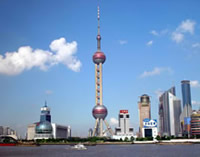|
|


ADVERTISEMENT
Buy Your own advertising
spaces!
.
Download Adobe Acrobat Reader to open [PDF] files.
Recent Visitors
Shoring Up Brand America at Expo 2010 Shanghai
2010. 13 April
by Dae Ryun Chang and Don Ryun Chang
(ethiopianreview.com)
"Brand America" stems from the notion that a country's name can evoke strong associations not only about its government but also its companies and its people. For US businesses operating abroad, a powerful Brand America can provide that extra edge when competing with local or other countries' products. Unfortunately, for most of the past decade, Brand America has been more of a liability than an asset as it suffered a steep decline. Obama's election as the U.S. President has helped to restore his country's brand value, but some red flags such as the continued drop in tourism and the failed Chicago Olympic bid suggest that there may still be problems. More importantly, even Obama's brand is now losing its luster and this may eventually hamper Brand America.
Against this backdrop, a good opportunity to shore up Brand America comes up in a few weeks when the USA Pavilion opens at EXPO 2010 in Shanghai, China on May 1st. The Expo (also called the World's Fair) will be a six-month mega event that serves as a platform for economic, scientific, technological and cultural exchanges between the 200 participating countries. Among the big-name US companies acting as sponsors are Wal-Mart, Johnson & Johnson, GE and Microsoft, all of whom are guaranteed a space in the pavilion's "honor wall," and other corporate privileges.
The $61 million US Pavilion, shaped like an American eagle, has already been called "uninspiring." Since the U.S. at this late point will not be able, in any significant way, to alter the fixtures, here are our thoughts about how the US governmental officials, cultural organizations, and corporate sponsors might tweak the delivery of its "national brand" persona.
- Make it real.
A common concern with Expos is that apart from its intercultural linking function that it can be overly commercialized. The centerpiece of the US Pavilion — a "4-D" film installation — already the risk of "going Hollywood." For many visitors, many of whom will not have ever been to the US, their first contact with "the American way of life" should not have any obvious selling angles. Instead, creating "touchpoints" that involve real cultural content such as ordinary people, "place-making" images, and food will be perceived as being more authentic. Among the many themes pushed by the U.S. Pavilion, "diversity" and "community-building" may resonate the most strongly by visitors and they should be the ones most promoted. But they also need to be amplified to embrace a greater world-wide perspective.
- De-politicize Brand America.
Expo should communicate the goodwill of various American stakeholders and the message that they are sensitive to the transforming dynamics of the new world order. Despite the recent political tensions between the governments of China and Japan with the US, our recent meetings with professionals from those countries indicate that they still hold a positive attitude towards Americans and American brands. That kind of grassroots support will be undermined if a seemingly political agenda is promoted by the US Pavilion.
- Bring Apple into the brand picture.
A big missed opportunity is that Apple does not appear to be an active sponsor in the U.S. Pavilion. In Asia, owning an iPhone is becoming the quintessential expression of being cool and using its diverse range of apps demonstrates how one leads a dynamic digital lifestyle. More importantly, technology sourcing, manufacturing, and assembly for both the iPhone and the iPad are being done in the Far East via collaborations with companies in Japan, Korea, Taiwan and China. Thus Apple can be a lynchpin brand that ties the US with this part of the world. "Collaboration & Creativity" could be a killer slogan for the US Pavilion and Apple being there would exemplify that.
Compared with the millions spent on the hardware for the US Pavilion, the steps outlined here will cost much less and will be easy to implement. As for their long term effects in revamping Brand America to a new generation of foreign people, they could be priceless.
Dae Ryun Chang is Professor of Business at Yonsei School of Business in Seoul, Korea. He has taught and given industry talks around the globe on advertising, branding, sponsorship, and digital marketing.
Don Ryun Chang is Professor of branding and design management in the department of visual communication at Hongik University and the immediate past President of the International Council of Graphic Design Associations.


